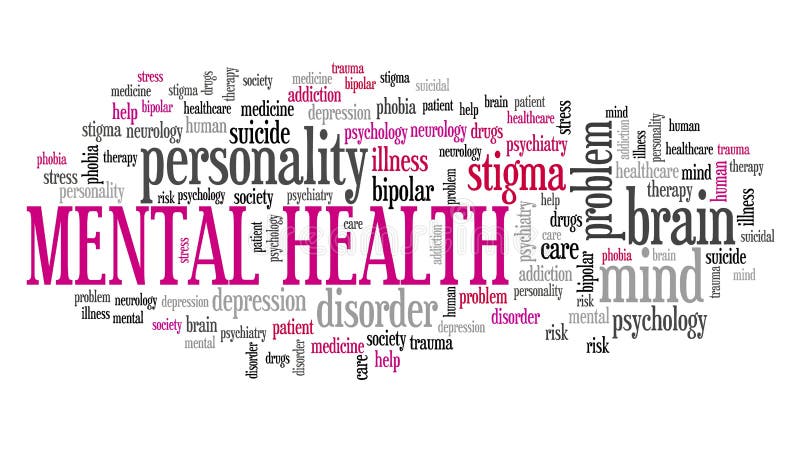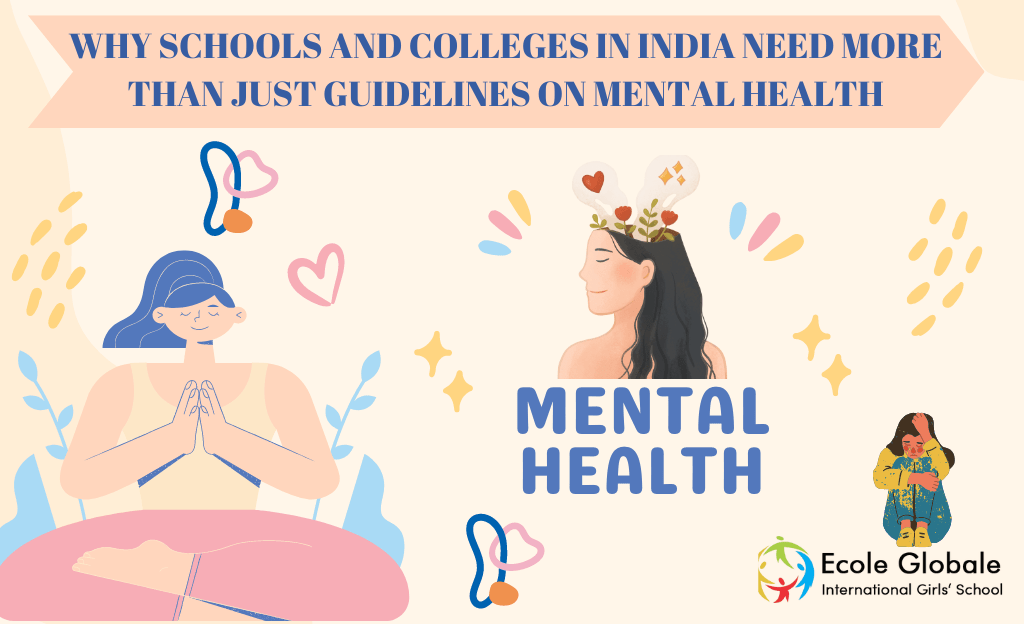Mental health is an increasingly critical issue in India, and schools and colleges are not exempt from its effects. With a population of over 1.3 billion, India faces unique challenges in addressing mental health concerns, including stigma, inadequate resources, and a shortage of mental health professionals. According to the National Mental Health Survey of India, nearly 15% of the population is affected by mental health issues, and the numbers are expected to rise. The education sector, which plays a crucial role in shaping the country’s future, must prioritize mental health and well-being.
The mental health of students and staff in schools and colleges is essential for their academic success and overall well-being. However, mental health concerns are often ignored or stigmatized, leading to significant consequences such as poor academic performance, dropouts, and even suicide. Therefore, it is vital to address the mental health crisis in schools and colleges and implement practical solutions to support students and staff. In this blog post, we will explore the current state of mental health in Indian schools and colleges, the need for more than just guidelines, and how to address the challenges of prioritizing mental health.
The State of Mental Health in Indian Education

Mental health issues are stigmatized in Indian society, and this extends to schools and colleges. Students may fear being ostracized or discriminated against if they speak up about their mental health. The lack of awareness and education about mental health further fuels the stigma and contributes to a culture of silence around mental health concerns.
The education sector in India is often underfunded and has limited resources to address mental health concerns. Mental health professionals are scarce, and schools and colleges may not have access to necessary resources, such as counseling services or mental health programs. This creates a significant barrier to addressing mental health concerns in a timely and effective manner.
Teachers and staff play a critical role in supporting students’ mental health and well-being but may lack the necessary training or resources to do so effectively. Teachers may not have the knowledge or skills to identify and support students with mental health concerns, and staff may not have the resources to provide the necessary support, such as counseling or therapy. This further exacerbates the mental health crisis in Indian schools and colleges.
The Urgent Need for Action on Mental Health in Indian Education

According to the Day schools in Dehradun, While the government has released guidelines for promoting mental health in schools and colleges, there is often a gap between these guidelines and their practical implementation. Many institutions lack the resources and infrastructure to implement these guidelines effectively, leading to a lack of tangible improvements in students’ mental health.
To address the mental health crisis in Indian schools and colleges, there is a critical need for mental health professionals, such as counselors, psychologists, and psychiatrists, to be present on campuses. These professionals can provide students with the necessary support and resources to manage their mental health concerns effectively.
Mental health education needs to be integrated into the curriculum in a structured and comprehensive manner. This can help destigmatize mental health and promote early identification and intervention for students with mental health concerns. It can also provide students with the necessary tools and resources to manage their mental health and well-being effectively.
From Awareness to Action: Addressing the Challenges of Mental Health in Indian Education

The government needs to take a more active role in promoting mental health in schools and colleges. This includes allocating resources for mental health infrastructure, training teachers and staff on mental health, and creating policies that support students’ mental well-being. Collaboration between schools, colleges, mental health organizations, and professionals can provide students with access to specialized resources and support. Such collaboration can also promote greater awareness and understanding of mental health concerns among students, teachers, and staff.
Community involvement and support can play a critical role in promoting mental health in schools and colleges. This can include parents, alumni, and other stakeholders working together to create a safe and supportive environment for students. It can also involve community organizations providing resources and support for mental health promotion and awareness initiatives.
Successful Initiatives for Mental Health in Indian Education

As per research conducted by Schools in India, In India, there have been some successful initiatives aimed at addressing mental health in schools and colleges. For example, some institutions have implemented mental health programs that focus on promoting awareness, providing counseling services, and creating safe spaces for students to discuss mental health issues. Additionally, support groups and helplines have been established to provide students with access to mental health resources and support.
Here are some examples of successful initiatives aimed at addressing mental health in schools and colleges in India:
Mann Mela:
Mann Mela is a mental health initiative launched by the University of Delhi, aimed at promoting awareness and providing support to students. The initiative offers counseling services, workshops, and events focused on mental health issues such as depression, anxiety, and stress.
Saathi:
Saathi is a mental health initiative launched by the Indian Institute of Technology Bombay, aimed at creating a safe and supportive environment for students to discuss mental health issues. The initiative offers counseling services, workshops, and support groups, as well as a 24/7 helpline for students in distress.
The Mindler Foundation:
The Mindler Foundation is a mental health initiative aimed at promoting mental health education and awareness in schools and colleges across India. The foundation offers training and resources for teachers and students, as well as mental health workshops and events.
The impact of these initiatives has been positive, with many students reporting increased awareness and reduced stigma around mental health issues. However, it is important to note that these initiatives are often limited in scope and availability, and more needs to be done on a broader scale to address the larger systemic issues of mental health in schools and colleges in India.
In summary, addressing the current state of mental health in Indian schools and colleges is a crucial issue that needs urgent attention due to a lack of awareness, stigma, and insufficient resources. To overcome this, practical solutions beyond guidelines are needed, and the government, mental health organizations, and communities must work together to prioritize mental health needs.
Successful initiatives like mental health programs, helplines, and support groups show positive outcomes, but more actions are required to ensure access to these resources and integrate mental health education into the curriculum. Prioritizing mental health is critical for the overall well-being of students and staff, and by implementing the right interventions, support, and resources, a healthier and more productive learning environment can be created for all.






